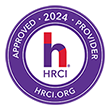New Legal Risks for Employers: OSHA’s New Use of Injury & Illness Data
Several new developments have impacted OSHA’s access to employee injury and illness data, including COVID-19 related information. Also, OSHA is putting employer injury/illness data submitted under the E-recordkeeping rule out online – making this data much more transparent and public.
What does this mean for your organization? Putting a public spotlight on this information can have wide-spread implications for companies including violating employee privacy rights, targeted OSHA inspections and even heightened exposure to tort litigation.
Join us for this information-packed, 60-minute event to learn what these new developments mean for your company. We’ll cover:
- Exposures the new OSHA rules and practices can potentially put on employers
- How injury/illness data can now be used by OSHA for enforcement purposes
- Ways the new changes making injury/illness data public-facing will impact employers
- Impact of OSHA’s record auditing programs on employee privacy rights
- Changes under the Employee Medical Records rule that effect what can be accessed during inspections
Program Highlights
OSHA Rules Impacting Use of and Access to Injury/Illness Data and Records
- OSHA’s new Medical Records rule and what it means for employers
- The release of e-recordkeeping data and the implications from public disclosure
- Worker privacy rights and HIPAA limitations with respect to OSHA or NIOSH
- COVID-19 recording and reporting requirements under current federal OSHA policy and state emergency standards
OSHA Inspection Practices and Enforcement Actions
- E-recordkeeping data and OSHA’s site-specific targeting inspection program
- Ways injury/illness data can be used by OSHA for enforcement purposes
- OSHA’s egregious penalty process and how it relates to recordkeeping
- What personal medical information of workers can be accessed by OSHA
- How OSHA is using injury/illness reports in terms of investigations and Rapid Response Investigations (RRI) program
- Criminal provisions of the OSH Act pertaining to recordkeeping and falsification of documents
- How to respond to OSHA record requests that implicate employee privacy rights and HIPAA protections requirements
About the Speaker
Adele Abrams is an attorney and Certified Mine Safety Professional, who is the president of the Law Office of Adele L. Abrams PC, a multi-attorney firm with offices in the DC area, Denver and WV. She represents employers nationwide in OSHA and MSHA litigation. Adele also provides safety training, consultation and auditing services.
She is the 2017 recipient of the National Safety Council’s DSSA award, and is an active member of the American Society of Safety Professionals, where she has received the SPY award multiple times. Adele is also on the faculty of the University of Colorado, and Catholic University, where she instructs on employment, labor and occupational safety law.Program Benefits
Learn new rule changes in how OSHA can access and use your organization’s injury/illness data and employee medical records - and increased risks of exposure. We’ll also show you what to now expect during the inspection process when it comes to your records, and how to respond.
If you'd like this program customized for your organization, call us at 1-800-964-6033.
We're certain we can fulfill your training needs, while making it fit in your budget!
HRCI Credits

This program has been approved for 1 (HR (General)) recertification credit hour toward aPHRTM, aPHRiTM, PHR®, PHRca®, SPHR®, GPHR®, PHRiTM and SPHRiTM recertification through the HR Certification Institute. Learn more at hrci.org
BCSP Points

For this one hour program you may claim 0.05 continuance of certification points (COC's) from the Board of Certified Safety Professionals (BCSP).
Please submit a request to obtain proof of your participation and a certificate of attendance will be emailed within 2-3 days.
Purchase this On-Demand Workshop
New Legal Risks for Employers: OSHA’s New Use of Injury & Illness Data
$199 + applicable taxes
You will receive access to the live event(s) which includes a copy of the speaker's presentation, real-time training with our expert instructor, and an interactive question & answer period. Two to three business days after each live training concludes, an email is sent to registrants which contains a link for unlimited access to the on-demand recording you can revisit & review.
You'll receive a link to access the recording(s) in your order confirmation email. On-demand recordings also include a copy of the speaker's presentation and the ability to submit your questions to the expert, for up to 7 days after viewing.
$300 + applicable taxes
You will receive access to the live event(s) which includes a copy of the speaker's presentation, real-time training with our expert instructor, and an interactive question & answer period. Two to three business days after each live training concludes, an email is sent to registrants which contains a link for unlimited access to the on-demand recording you can revisit & review.
You'll receive a link to access the recording(s) in your order confirmation email. On-demand recordings also include a copy of the speaker's presentation and the ability to submit your questions to the expert, for up to 7 days after viewing.
$499 + applicable taxes
You will receive access to the live event(s) which includes a copy of the speaker's presentation, real-time training with our expert instructor, and an interactive question & answer period. Two to three business days after each live training concludes, an email is sent to registrants which contains a link for unlimited access to the on-demand recording you can revisit & review.
You'll receive access to our full library of on-demand trainings along with the speaker's presentation and handouts for each event.
$899 + applicable taxes
You will receive access to the live event(s) which includes a copy of the speaker's presentation, real-time training with our expert instructor, and an interactive question & answer period. Two to three business days after each live training concludes, an email is sent to registrants which contains a link for unlimited access to the on-demand recording you can revisit & review.
You'll receive access to our full library of on-demand trainings along with the speaker's presentation and handouts for each event.
Guaranteed to be Good
All training experiences include a 7-day 100% money-back guarantee.
Full-Team Pass
Simply share the invite link with your team so you can learn and grow together!
Yours Forever
The event recording and materials are yours to rewatch and share as you choose.


